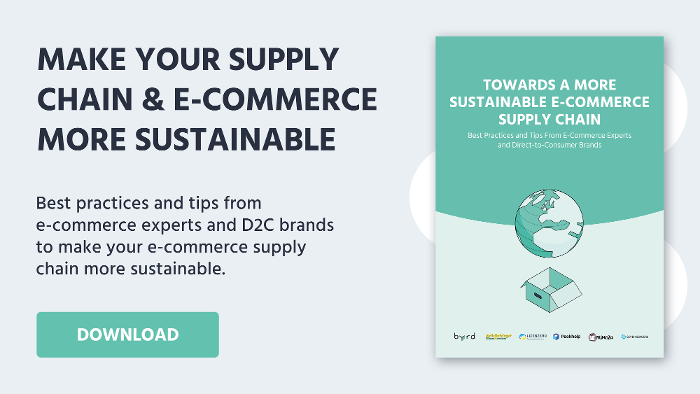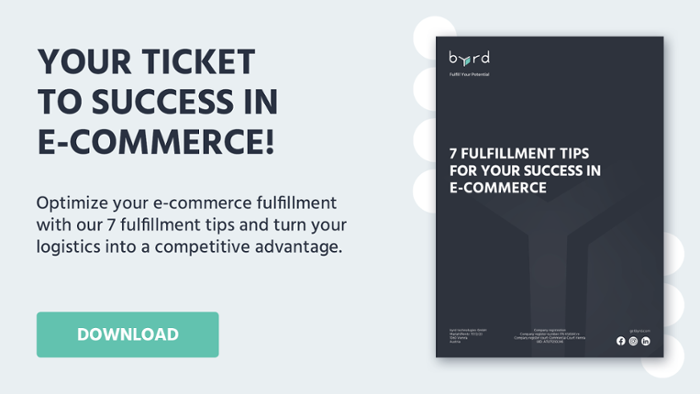Top Online Marketplaces in France for E-commerce Businesses in 2025
Table of Content
France’s online retail scene is back and booming. In 2024, product sales hit €66.9 billion, bouncing back to pre-pandemic highs. With over 50 million digital buyers and online shopping making up 11% of total retail, France is now one of Europe’s hottest e-commerce battlegrounds. Want in? Selling through marketplaces is one of the fastest, most scalable ways to reach French customers. In this blog, we reveal the top 10 online marketplaces in France for 2025 and share expert tips to help you stand out.
What is an online marketplace?
The concept of a one-stop online shopping mall is a convenient option for online shoppers and has consequently been gaining popularity. France ranks third in the number of e-commerce users in Europe, behind Germany and the UK, with an estimated user base of more than 50 million. In the last decade alone, the number of operational e-commerce websites in France has almost doubled, highlighting the growing influence and profitability of the country's thriving digital commerce
Since they are very accessible and easy to implement, online marketplaces are often attractive for retailers to expand into new e-commerce markets.
To be classified as an online marketplace, an e-commerce website has to fulfill two main criteria:
- Buyers can buy the products or services on the website or the app
- The platform must host a significant number of both buyers and third-party sellers
This definition excludes price comparison sites, which typically redirect users to external vendors for purchases. There are various types of online marketplaces based on transaction models and focus areas, including:
- B2B, B2C, and C2C (based on buyer-seller relationships)
- Horizontal and Vertical marketplaces (based on product range)
- Product-based vs. Service-based platforms
In this article, we'll focus on product-based marketplaces, we'll rank marketplaces by traffic according to Similarweb and we can't guarantee this list to be exclusive.
What are the most popular marketplaces in France?
Let's take a look at the most popular online marketplaces in France in terms of monthly visits. The data used in this overview comes from Similarweb from May 2025 (retrieved June 2025).
#1 Top online marketplace in France: Amazon.fr

- Visits per month in France: 189.4 million
- Product category: Generic
- Target region: Global
It comes as no surprise that Amazon leads the French e-commerce market as it does in most Western countries.
Chief advantage of Amazon:
With more than 300 million products listed, Amazon is undoubtedly the leading marketplace in France and the place to sell your products. Selling on the platform guarantees the trust of potential buyers and a lot of traffic.
#2 & #2.5 Top online marketplace in France: AliExpress and Temu
![]()

- Visits per month in France: 41.4 million & 104.1 million
- Product category: Generic
- Target region: Global
And here comes John Cenaaaaa AliExpress! This Chinese marketplace is the player to keep an eye on the French market, and overall in every Western country. AliExpress wants to directly compete with Amazon.
Temu is also taking Europe by storm. With its almost unbeatable prices, in particular, the marketplace is causing many Western online retailers to worry. This makes it all the more important for them to stand out with a strong brand and high service levels.
Chief advantage of AliExpress:
AliExpress is becoming the (market)place to be for more and more online retailers. If anything, it is clear that the popularity and visibility are not going to slow down. As such, AliExpress can also be a good entry point for cross-border sales.
#3 Top online marketplace in France: Leroy Merlin

- Visits per month in France: 33.12 million
- Product category: Home improvement and garden supplies
- Target region: Global
Leroy Merlin is the leading marketplace for home improvement and garden supplies in France and Europe, far ahead of ManoMano, Ikea, or Castorama. To paint a picture, the French marketplace revenue in 2024 was US$ 8.5 billion.
Chief advantage of Leroy Merlin:
In addition to its strong offline presence (141 physical stores), Leroy Merlin has been increasing its online activities as well. The marketplace benefits from the strong trust of French customers in the Leroy Merlin brand, as well as the expert image.
#4 Top online marketplace in France: Cdiscount

- Visits per month in France: 27.9 million
- Product category: Generic with a focus on electronics and furniture
- Target region: France
When you are looking for electronics and overall multimedia products in France, Cdiscount is usually the top-of-mind brand. The online marketplace mainly operates in France (and some other French-speaking countries) and is seen as Amazon’s main competitor. In 2024, Cdiscount’s global net sale was US$755.6m, and 13,000 merchants were selling on that marketplace.
Chief advantage of Cdiscount:
Cdiscount is one of the most important marketplaces and e-commerce website in terms of traffic in France. With more than 100 million products listed, Cdiscount is a historic player in the French e-commerce market, especially for electronics, and now for furniture as well.
#5 Top online marketplace in France: eBay

- Visits per month in France: 23.6 million
- Product category: Generic
- Target region: Global
Even if eBay is kind of the oldest player in the French e-commerce game, the marketplace benefits from a huge amount of visits every month and claims to have 5 million active buyers. On top of that, nowadays, 80% of the sales are not auction-based, which shows that the platform is becoming more and more B2C friendly.
Chief advantage of eBay:
As is the case with Amazon, French consumers place a lot of trust in eBay since it’s one of the pioneers in the e-commerce industry. In addition, the online marketplace is known to almost every online shopper.
#6 Top online marketplace in France: Vinted

- Visits per month in France: 30.9 million
- Product category: Fashion and accessories
- Target region: Global
Born in 2008 in Vilnius, Lithuania, Vinted is a real unicorn! In the French e-commerce market, the marketplace is very successful and used by a huge amount of consumers. As an example, in 2025, Vinted reached a monthly web traffic of more than 30 million visits.
Chief advantage of Vinted:
Second-hand fashion is expected to be worth $2.2 billion by 2025 (Statista), and Vinted is the leader in the French market and Europe. As of June 2024, there were 65 million registered Vinted users, 23 million of them being French. That makes Vinted the largest fashion store in the country. In addition to its huge popularity, the marketplace is quite simple to use and you can build a strong community.
Disclaimer, Vinted is one of byrd's valued customers.
#7 Top online marketplace in France: Fnac.com

- Visits per month in France: 22.2 million
- Product category: Cultural and electronic products
- Target region: Europe
Fnac is one of the most known brands in terms of cultural goods and services in France, if not the most known. During 2024, revenue reached US$ 8 billion.
Chief advantage of Fnac.com:
Selling on that marketplace is a guarantee of having visibility, but also building trust in the customer’s mind. If you sell cultural products, like books, for example, this marketplace is the perfect fit.
#8 Top online marketplace in France: ManoMano

- Visits per month in France: 12.9 million
- Product category: DIY, gardening, homeware, crafts
- Target region: Europe
This France-based niche marketplace is focused mainly on gardening, DIY, and homeware in general. Besides operating in the French e-commerce market, it also serves the German, British, Italian, Belgian, and Spanish markets. The revenue in 2024 amounts to US$ 1.9 billion
Chief advantage of ManoMano:
The main advantage of selling via ManoMano is its reputation in its niche. Trust within the community is solid and visitors on the marketplace have a stronger purchase intent than, for example, visitors of Amazon. In addition to the 10 million references on the website, ManoMano has built an expert community called Manodvisors.
#9 Top online marketplace in France: La Redoute

- Visits per month in France: 12.7 million
- Product category: Fashion and home decor
- Target region: Europe
1837… that’s the year when La Redoute was born, so saying it’s a pioneer is almost an understatement. During its 180+ years of existence, not everything went smoothly for the company, especially the transition to e-commerce and becoming a successful marketplace. The global net sale is US$ 501.4m and in 2024 it's a key player the Toys, Hobby & DIY market in France.
Chief advantage of La Redoute:
Like Cdiscount, La Redoute benefits from its historical position and status in the French market. Moreover, the marketplace can count on its 10 million customer database and its successful strategy of second-hand and sustainable fashion.
#10 Top online marketplace in France: Veepee

- Visits per month in France: 11 million
- Product category: Generic
- Target region: Europe
Created in 2001, the French marketplace has a very special and successful business model. In fact, Veepee offers products through online flash and exclusive sales. To be more precise, the marketplace hosts sales of merchants and retailers only for members with discounted prices from 50% to 70% off.
Chief advantage of Veepee:
There are several advantages of selling on Veepee, such as the high conversion rate, the visibility, and the feeling of exclusivity or the number of users.
What are the alternatives and complementary options to online marketplaces in France?
Online marketplaces are an excellent option to take the first steps in online commerce, increase e-commerce sales, or expand into new markets. Especially when you are focusing on a specific vertical. Nevertheless, running an independent online store has some advantages as well. These include the following benefits:
- Greater control over all processes
- Flexible cost structure
- Possibility of branding and building customer relationships
- Possibility of cross-selling and up-selling
- Differentiation from the competition
- Direct contact with customers
- More customer data insights
- Customizable packaging
- Focus and emphasis on sustainable processes
How can e-commerce fulfillment companies like byrd help?
Thanks to Amazon and Co., optimized logistics with fast and free shipping has become golden in e-commerce and many online shoppers expect the same experience across the board. This also applies to online marketplaces in France as well, regardless of the size of the company or its market share.
However, for most of these companies, offering a comparable level of fulfillment is simply not feasible at a cost-covering level.
This is where so-called 3PLs (third-party logistics providers) or simply fulfillment companies come into play. They offer online retailers the opportunity to outsource logistics in order to compete with the “big players” on an equal footing.
Check out byrd's fulfillment network and the offer for the fulfillment location France
Through automated fulfillment processes, from storage, picking, and packing to shipping, everything is done for you. Efficient reverse logistics is also taken care of.
Moreover, optimized processes ensure that orders are processed immediately and that no time is lost. Shipping millions of parcels give fulfillment companies a relatively large bargaining power over the most popular parcel delivery companies in France, enabling them to offer competitive prices to their customers.

In addition, 3PL companies like byrd have many different warehouses where you can freely split and allocate your inventory among them. This reduces the shipping distance to your customers, which reduces both shipping time and the impact on the environment. byrd’s fulfillment network is especially relevant for cross-border logistics to minimize proximity to the end customer. Additionally, during seasonal peaks or other bottlenecks, you benefit from a resilient and flexible supply chain.
Last but not least, it is also possible to offer individualized packaging with such a partner and thus stand out from the competition. With customizable packaging, D2C brands can thus leverage one more efficient marketing channel and continue to work on brand building.
byrd makes all of this possible with a high-performance fulfillment network in France. In addition, through fulfillment locations in the leading European e-commerce markets, we offer the ability to quickly and easily enter other European countries and fulfill online orders efficiently and easily.

